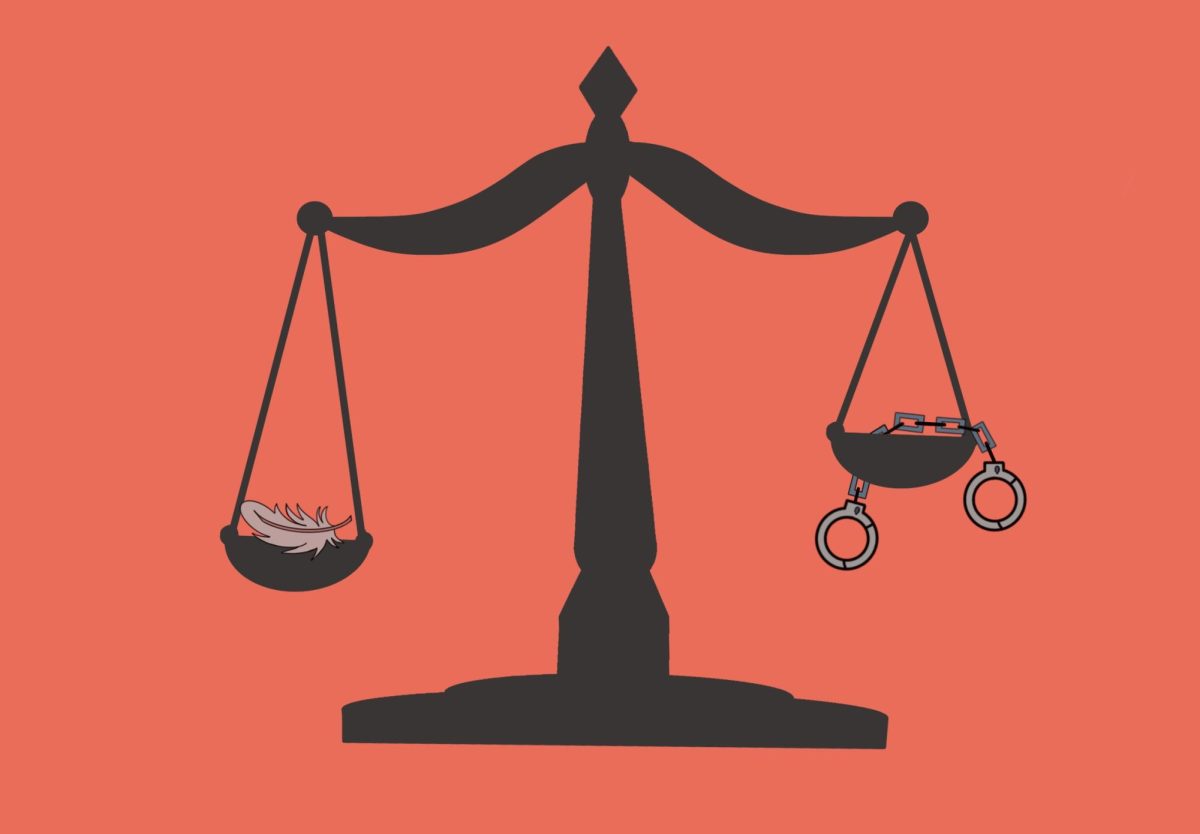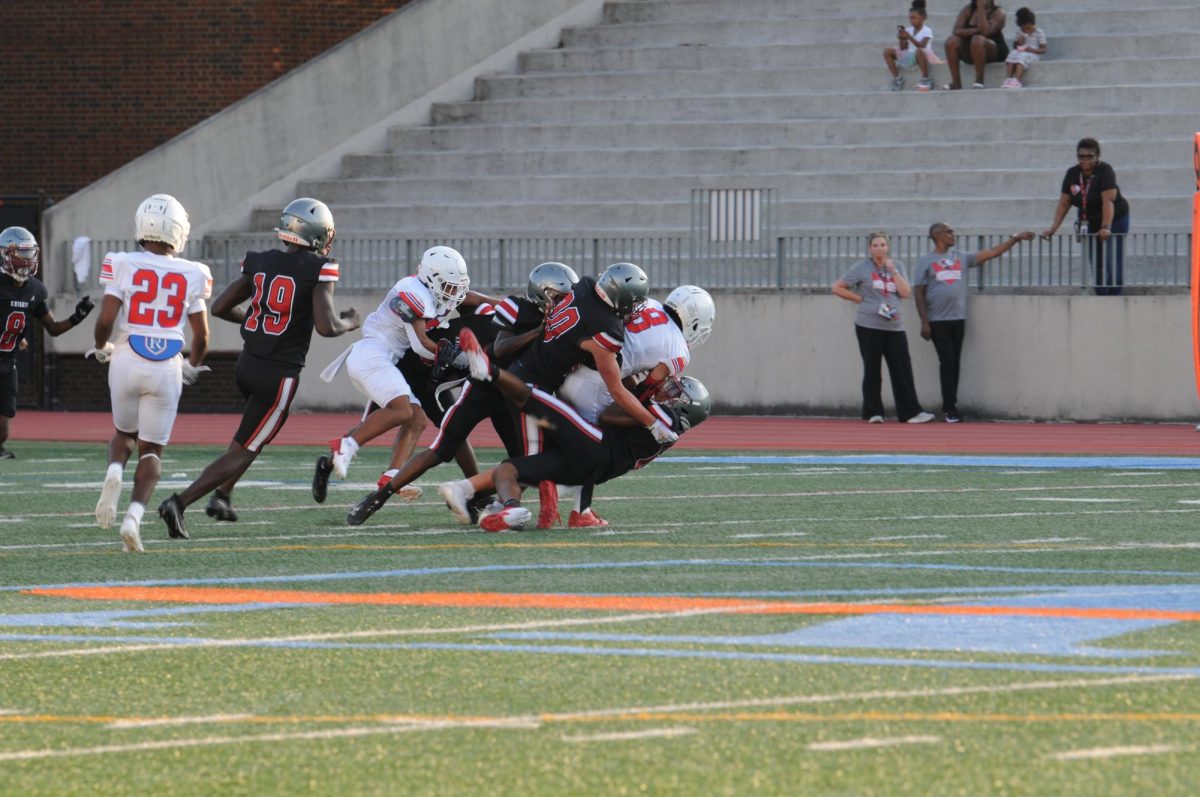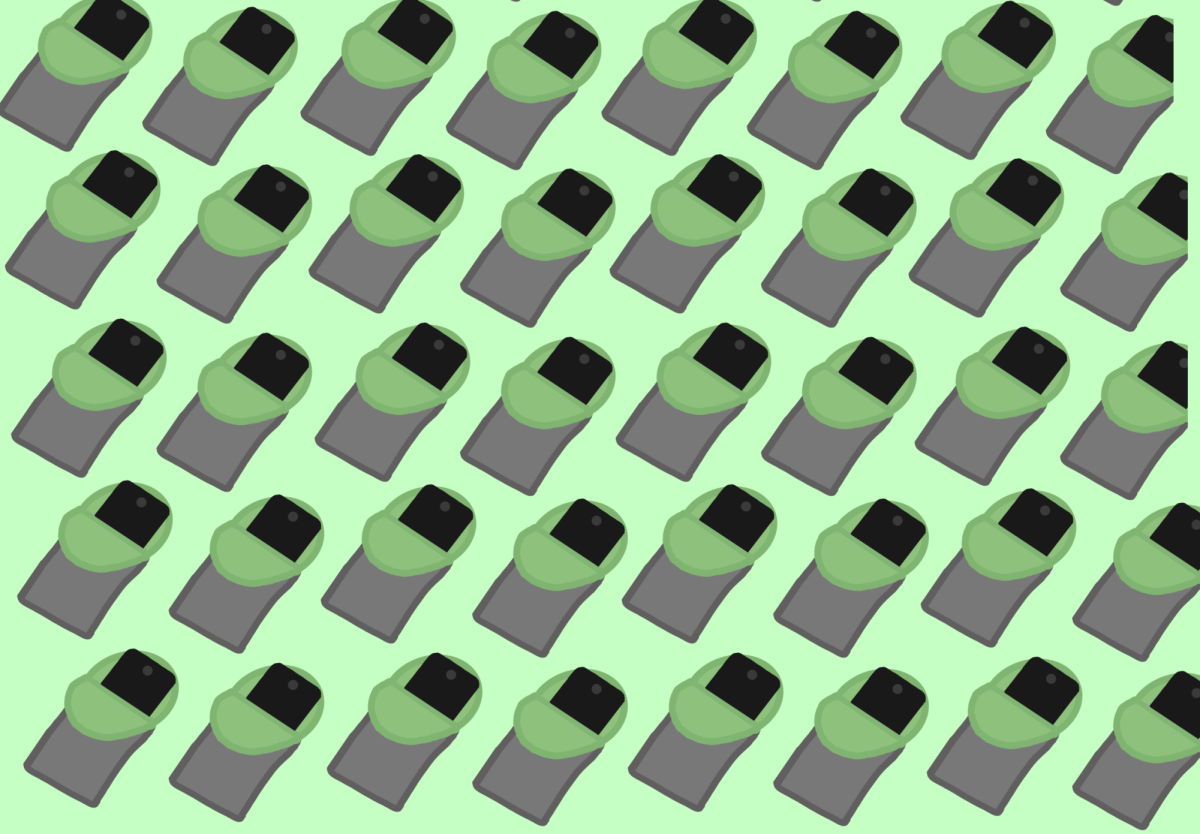Military needed to maintain order
Sam Lombardo
When Sarah Palin was asked about her strategy for mending the Syrian Civil War, she replied “Let Allah sort it out.” While it’s obvious that this plan of action is far too docile to be effective, putting boots on the ground in Syria is the initiative we need. To understand why, we must first understand the progression of the Syrian Civil War, then examine why our current efforts are inadequate, and finally determine what needs to be done to end the bloodshed.
President Obama’s strategy is to wage an indirect war on Syria. The U.S. is currently using air strikes to carpet bomb certain ISIS “hot spots” in hopes of neutralizing the threat, as well as arming and training rebels to fight the war. Both of these solutions have major problems.
Arming and training rebels to fight the war for us is simply not an effective strategy. Obama’s grand plan to arm a force of rebels 5,000 strong failed—after one year of the program’s operation, only 54 graduates had been deployed. An Al Qaeda affiliate then attacked and killed all of them.
According to General Lloyd Austin, the commander of U.S. Central Command leading the war on ISIS, there are currently only “four or five” U.S.-trained rebels fighting ISIS, and only about 110 in training. Thus, the program is considered a complete failure, and is in no way a reliable solution to the Syrian conflict.
Obama’s other course of action is a constant barrage of airstrikes raining down missile fire on Syrian regions suspected of housing ISIS militants. Yet, this strategy is also flawed: each of the 71 U.S.-led airstrikes have resulted in civilian casualties. The Guardian reports that these attacks have likely killed an estimated 459 civilians.
The airstrikes in Syria are also fundamentally flawed: we have no way of knowing who will occupy the land ISIS once claimed. Al Qaeda, the Assad forces or the Hezbollah (another terrorist group) could all stake a claim. One thing, however, is certain: it will not be any U.S. forces or any of our allies. We do not have a dependable ground force in Syria, and as U.S. General Martin Dempsey said, “you can’t have a successful, sustained air campaign without a successful, sustained ground campaign.” As arming rebels or counting on other allied forces is out of the question, the one thing the U.S. certainly can do to resolve this conflict is to create a strong ground force and put boots on the ground.
U.S. deployment of troops in Syria to end the civil war will not be effective unless applied in conjunction with current U.S. strategies. The action would work perfectly when combined with airstrikes. This strategy provides a dependable ground force to occupy captured land while allowing the U.S. to make steady progress in the region. At the same time, our nation would receive reliable intelligence on the ground in Syria so that we could properly target airstrikes and reduce civilian casualties. It would also further influence the impressionable rebels to aid the U.S. in the conflict.
To put it simply, people are scared of ISIS and don’t want to fight them. The group’s recent strategies, for example, involve strapping explosives to their cars and driving into enemy lines. The U.S. troops would have decreased such violence and mortality in the region, while demonstrating to the rebels that the U.S. is taking a direct step to influence the conflict. These troops would also act as a stabilizing force after our goals are achieved in Syria. We need allied leaders present to aid the new government so that the country doesn’t descend into another conflict after this one ends.
The main prerogative for this issue is that the bloodshed in Syria needs to stop. With hundreds of thousands of people already dead, this issue has become a top priority for the U.S. Our strategies, however, are ineffective. Yet the deployment of U.S. troops—if used in tandem with our current offensive—would provide another dimension and make our current initiative effectual. We need to implement a reliable, well-trained ground force in the Syrian conflict to remove Assad from power and rid the region of ISIS. This will only be possible if Obama adopts the policy of boots on the ground.
Diplomacy should be exhausted
Will Taft
The primary driver of the international refugee crisis is the ongoing conflict in Syria. Nineteen million refugees have already fled Syria, and each day, another 42,500 refugees join those who have already left. Humanitarian solutions, which only attempt to alleviate the suffering of refugees, will fall flat as the Syrian conflict persists. Additionally, destabilization in the region continues to allow the Islamic State to strategically capture land and oppress Syrian citizens. Despite coalition airstrikes, ISIL doubled its land holdings during 2014. ISIL originated from political instability and civil war in Syria, so eliminating ISIL will require removing that same civil war and restoring stability.
Thus, what is needed for the international community to undercut ISIL and the refugee crisis is a solution to the conflict in Syria. The United States putting troops on the ground in Syria is not a part of that solution because it would only exacerbate ongoing proxy wars, harm local populations, and unnecessarily risk American lives. The U.S. must look to political solutions to end the civil war in Syria.
If the U.S. committed ground troops in Syria, we would be bound to fighting two enemies: the Syrian state and ISIL. Because ISIL extends transnationally, we would quickly wind up with additional military commitments in Iraq. Furthermore, the magnitude of the military action to topple ISIL and Assad would lead to Syrian and U.S. civilian deaths on a gigantic scale. The huge number of regional players means U.S. involvement or backing would not give any one side a decisive military advantage. Instead, the current proxy wars involving Russia and Iran would continue, risking more civilian lives and more deaths. U.S. involvement would likely give rebels false hope, spurring more violence without a clear winner.
Furthermore, because the opposition to Assad’s regime is Islamic fundamentalists, there’s no clear answer to the question of who would replace him. Once ISIL is pushed back and Assad is out of office, the U.S. would be stuck with managing the region. When the U.S. invaded Iraq, the Bush administration thought an exile community of well-educated, secular elites could help start a democracy. The current state of Iraq reveals the United States’ inability to select successful or even trustworthy leaders. Iraq’s ineffectual government has allowed ISIL to spread. Toppling Assad would be an even larger blunder than the U.S. invasion of Iraq, because we don’t have a conception of who could rule Syria effectively. This means that while military action against Assad seems like a good idea in the short term, it risks further destabilization and additional lives by creating a power vacuum. We shouldn’t trap the United States into a conflict that logically concludes in more conflict and a prolonged occupation.
U.S. military commitment across the sea will not just aggravate Syria but also Russia and Iran. Russia and Iran have a vested interest in maintaining the Syrian regime because other powers in the region are turning to more liberal western countries such as the United States. On Sept. 22, the BBC reported that Russia plans to substantially expand its military presence in Syria through the development of two additional bases. Russia also sent 28 fighter jets to support Assad. In October, Russia began direct intervention on Assad’s side. Putting troops on the ground makes direct conflict with Russia likely as American troops collide with the Russian military. Russia’s continued support of Assad through military supplies allows Assad to avoid negotiations where his departure is touted as the only option. This means the U.S. will have to meet Russia halfway in political negotiations; we can’t go to the table yelling that Assad has to go.
Political negotiations which involve the current Syrian regime and regional actors ensure that no single group is driven to increased violence from what it views as an existential threat. Political diplomacy might not be as patriotic as military intervention but diplomacy is clearly in the long-term interest of the U.S. and Syrians. By becoming involved militarily or even lending material support to any one faction, the U.S. promotes the illusion that war is the only option.
Walking the line between political negotiations and military involvement will always be unsuccessful. Unless all players see the U.S. has a commitment to political negotiations, a prolonged war will remain the only option. We shouldn’t risk the lives of Americans and Syrians because we are too stubborn to negotiate.












